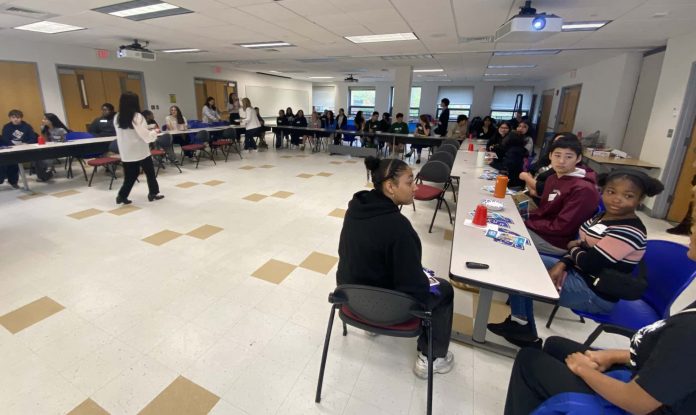A bustling cityscape settles and the quick steps of preoccupied pedestrians hustling home can be heard as a group of Connecticut students admire the sun setting over a city in China.
After a full day of immersing themselves in thousands of years of Chinese language and history, the students look forward to an evening respite. With one click, their virtual reality headsets power down, and they once again find themselves seated comfortably in a classroom on the Southern Connecticut State University campus.
Immersive virtual experiences like this are just one way Dr. Miaowei Weng, professor of Spanish and chair of the Department of World Languages and Literatures (WLL) at SCSU, plans to make Chinese language and culture accessible to high school students in the Greater New Haven Area this summer, free of charge.
Thanks to a federally funded STARTALK grant, Southern will host its first on-campus Summer Chinese Immersion Program from July 7 – 18. The program is open to rising 9th – 12th graders and will be tailored to students with beginner to intermediate proficiency in Chinese.
STARTALK is a federal grant program managed by the National Security Agency (NSA) that supports programming in critical-need languages, such as Chinese and Korean, that have been identified as critical to global engagement. This mission is to foster cross-cultural understanding and preparing future professionals with advanced language skills for a variety of careers in public service, education, and international missions.
With the help of stakeholders from Choate Rosemary Hall, New Haven Public Schools, and Southern’s own Department of World Languages and Literatures, Weng successfully secured a highly competitive federal STARTALK grant last year to develop this curriculum, titled, “Empowering Future Cities: Advancing Inclusivity and Sustainability,” which focuses on social and economic sustainability and inclusivity, using the United Nations 2030 Sustainable Development Goals as a roadmap.
The program is designed to challenge students to invest in their own communities to develop strong social networks of knowledge and mutual care and respect for one another. “It also encourages a deep understanding of cultural differences, fostering empathy and intercultural awareness, which is essential in today’s globalized society,” said program collaborator, Dr. Luisa Piemontese of the WLL Department.
Below: Students enrolled in the STARTALK program recently came to campus for orientation and a placement test.
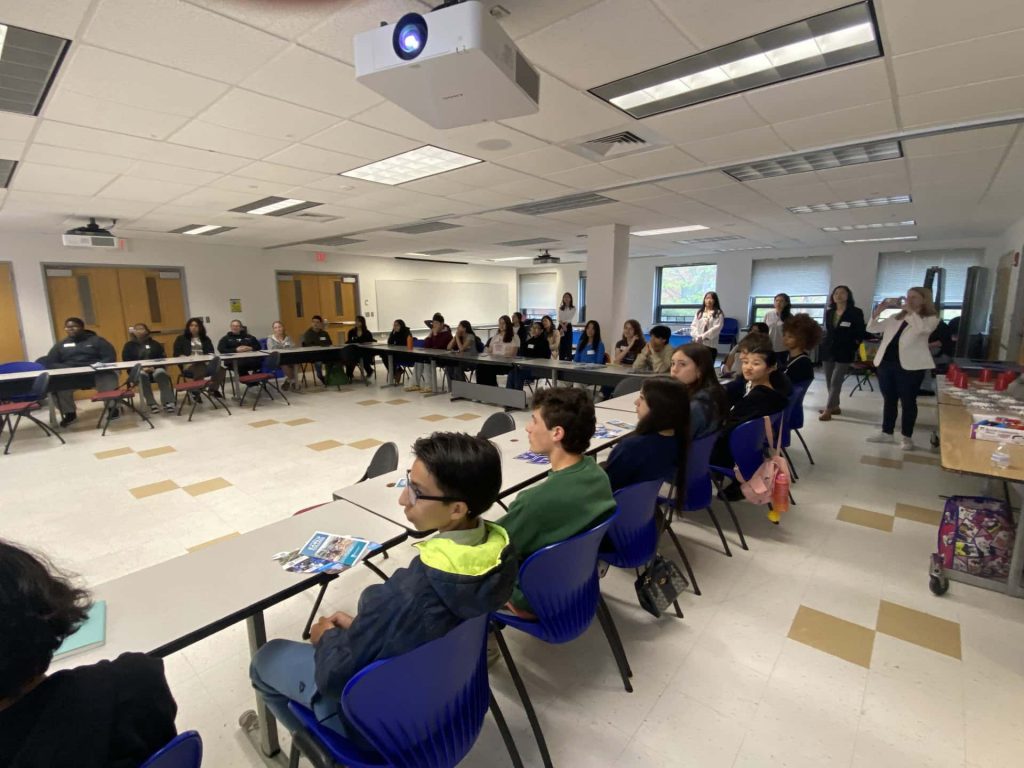
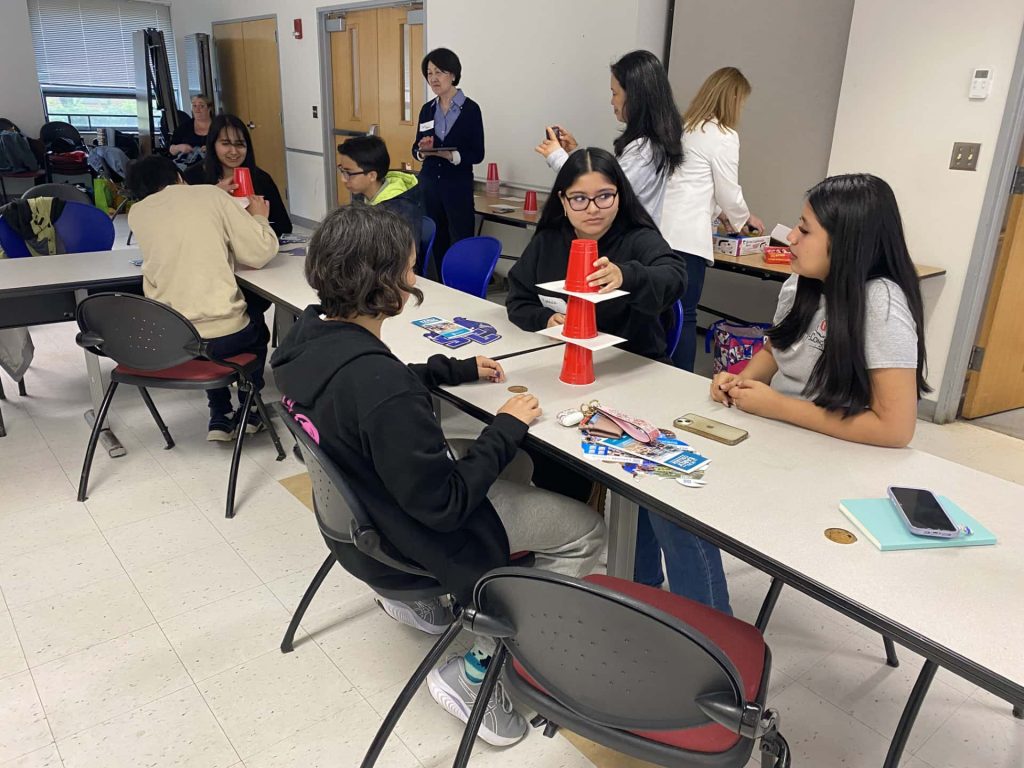
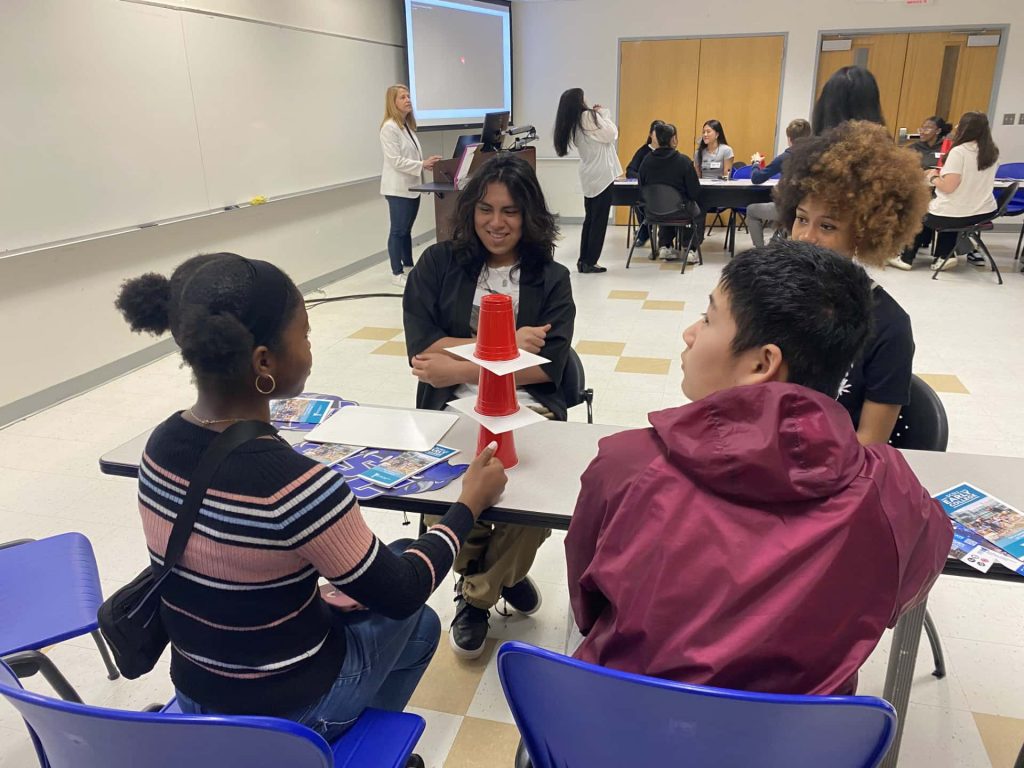
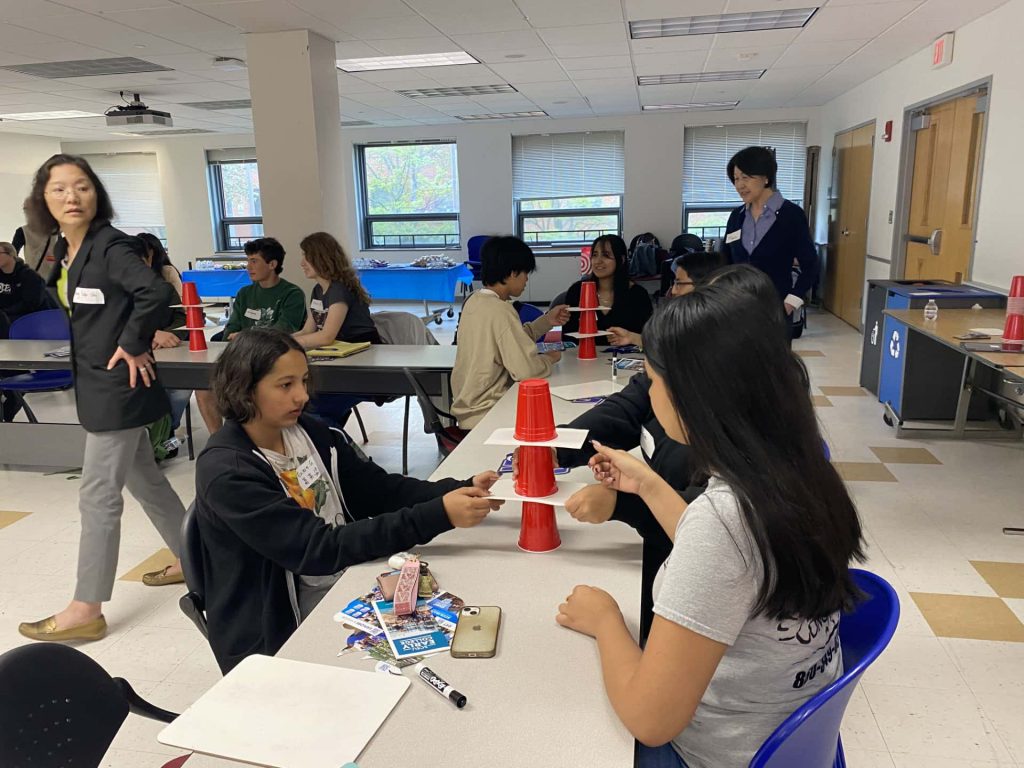
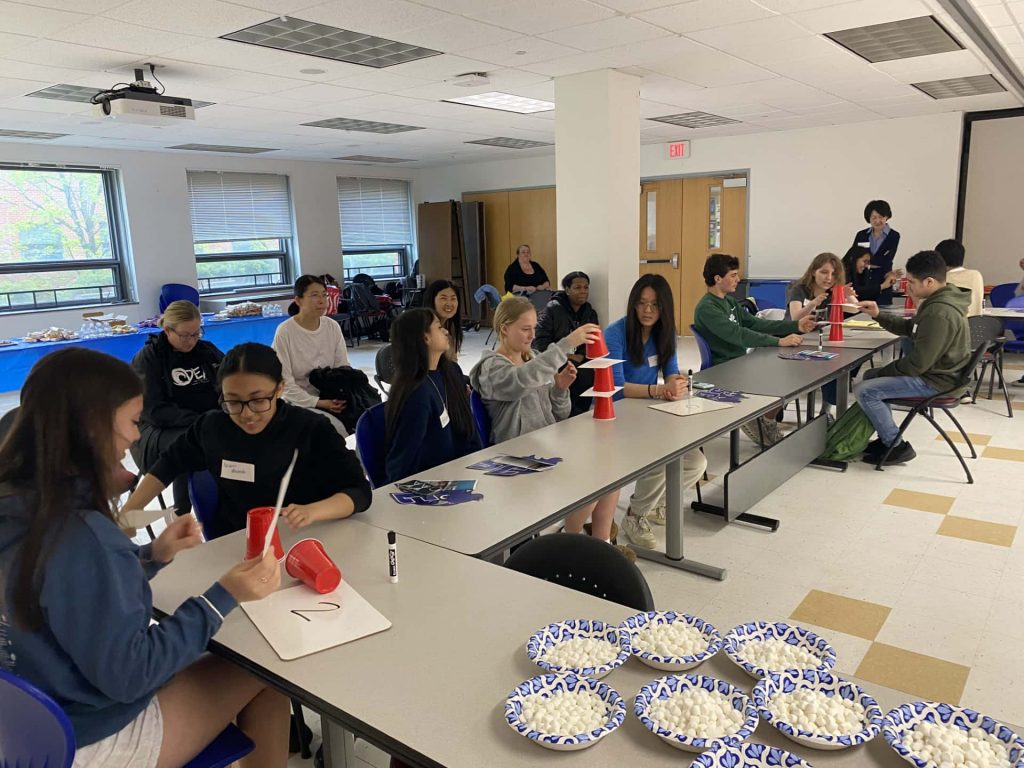
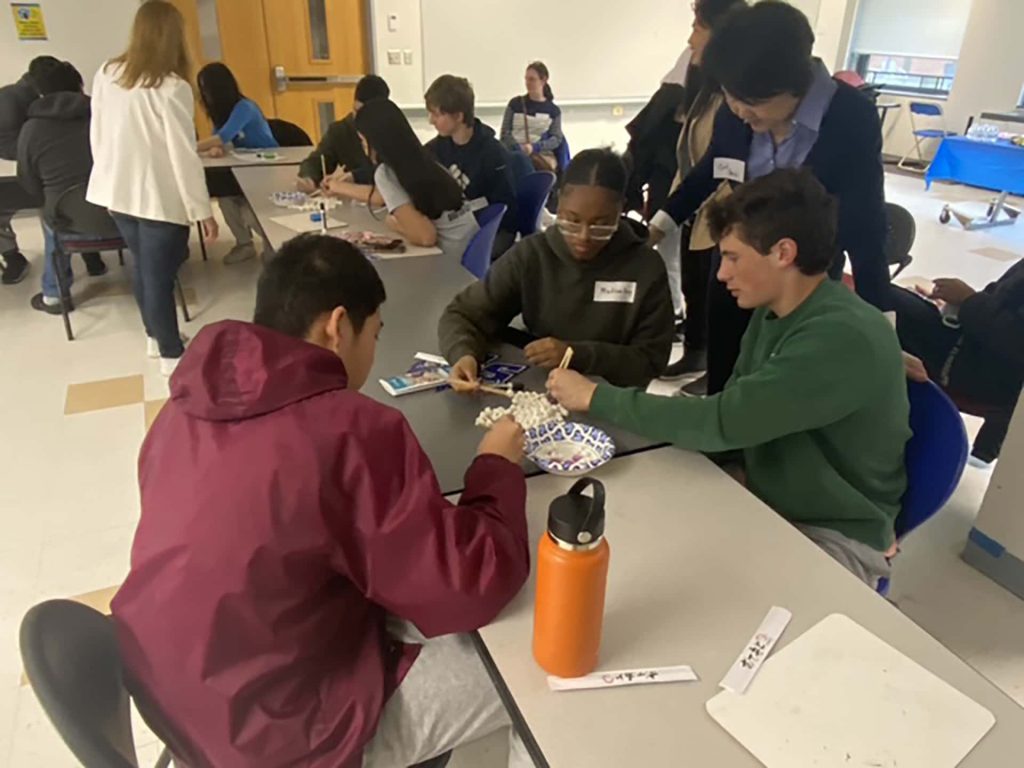
Though this program is new to Southern, the concept of global sustainability is not. Sustainable development is defined as economic growth that meets present needs without compromising future generations and was introduced in 1987 through the Brundtland Report, a publication by the World Commission on Environment and Development. The report issued a call for integrated approaches to economic growth that incorporated social and environmental considerations within financial and industrial growth strategies.
In 2015, building upon decades of global cooperation, the United Nations introduced The 2030 United Nations Sustainable Development Goals (SDGs); a set of global goals adopted by UN member countries to create a sustainable future for all by the year 2030. Known as a “shared blueprint for peace and prosperity” the SDGs present intersectional approaches to economic growth in ways that address poverty, education, energy, and gender equality while championing environmental protection through equity, inclusion, and shared responsibility, centering climate change as a major focus.
On a local level, similar efforts can be found in the 2018 Climate and Sustainability Framework developed by the City of New Haven.
“Multiculturalism, multilingualism, social responsibility, and cultural understanding is our mission. We built upon this and connected it to the United Nations program,” said Weng, speaking on the strategy used to develop the program’s curriculum. “We are trying to form future leaders to make the city more sustainable, to make them (the students) responsible for the city and also for the global world,” she said.
Jessica Haxhi, program collaborator and supervisor of foreign languages for New Haven Public Schools, said, “My favorite part about this program is that students from NHPS high schools and surrounding towns will come together around their interest in Chinese language and culture. Language learning opens doors to exciting opportunities in careers, travel, and future academics.”
The grant will cover instructors from Hopkins School, Choate Rosemary Hall, Amity High School, Foote School, and the New Haven Public School District, who will provide personalized attention for up to 30 students across three classes. A typical day in the program will consist of language immersion in the morning, and then feature cultural activities like art projects, field trips, virtual reality experiences, and guest speakers in the afternoon.
After a post-assessment and successful completion of the program, participants will be eligible for 1.5 Southern credits as part of the SCSU Early College Program.
“By making this program accessible, we empower students with the linguistic and cultural competencies needed to thrive in an increasingly interconnected world,” said Dr. Carol Chen Lin, lead instructor and director of Choate Abroad Programs in China at Choate Rosemary Hall.
“This is a wonderful achievement for Dr. Weng and her team, and it will greatly help to elevate the visibility of SCSU’s excellent WLL programs both locally and among other STARTALK-funded institutions,” said Julianne Fowler, interim director of SCSU’s Sponsored Programs and Research (SPAR).
Learn more about the program’s impact in the community by reading the New Haven Independent article, “Chinese Immersion Program Engages Local Teens”.

